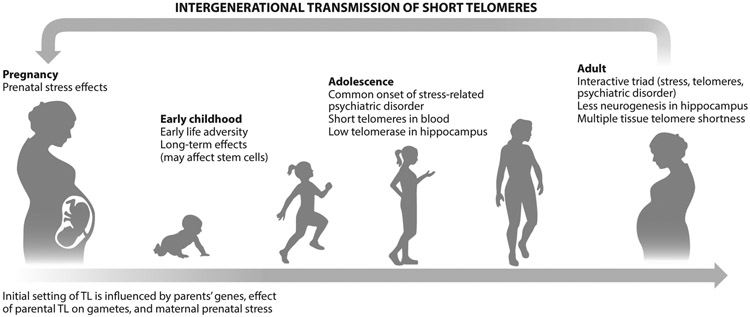Figure 2.
A model of life span relations among stress exposure, telomeres, and psychiatric disorders. Stress has effects throughout life. It has imprinting effects during pregnancy, leading to shorter telomere length (TL) in cord blood. In addition to genetic transmission, parents also transmit directly to their offspring their own acquired TL in the germ line. After birth, TL is further shortened by early adversity, which can have lifelong effects, possibly by impacting stem cell reserves. Early signs of dysregulated mood and high-risk temperaments in childhood are already related to shorter TL at that time. These early exposures put children at risk for psychopathology emerging in adolescence. Hippocampal volume appears to be associated with telomerase activity or TL. Recurrent mood disorders can further impact TL, likely through stress-related pathways. This can be a lifelong, iterative, positive-feedback loop in which greater stress vulnerability and mood disorders impact TL. These interrelations, leading to a vicious cycle, can help explain the greater comorbidity with physical disease later in life.

